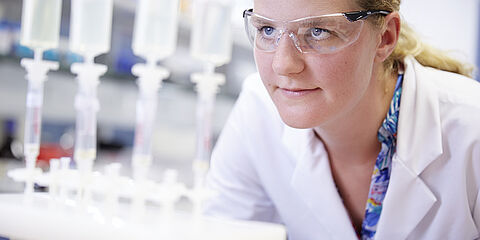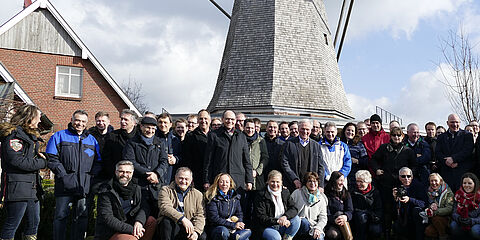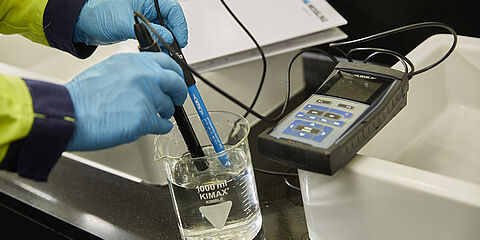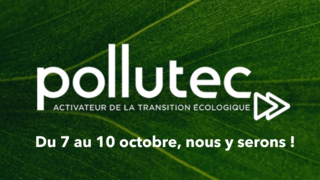The WESSLING Innovation Award
A working environment for developing and implementing good ideas is not only enjoyable but also contributes to success.
With our innovations, we ensure new service offers, improved business processes, a digital information flow and even more customer-oriented service. Innovativeness has therefore always been writ large at WESSLING and is fostered by the annual presentation of the WESSLING Innovation Award for the best ideas from the workforce.
The WESSLING Innovation Award prizewinners
The WESSLING Innovation Award prizewinners
WESSLING Innovation Award 2020
“An innovation is more than just a good idea”
Innovation was present in every respect at this year's presentation of the WESSLING Innovation Award, which is endowed with 10,000 euros, as not only did the award-winning ideas radiate with the innovative power of WESSLING, but also the award ceremony itself. The event reflected the belief that in challenging times we may need to rethink the way we operate and do business.
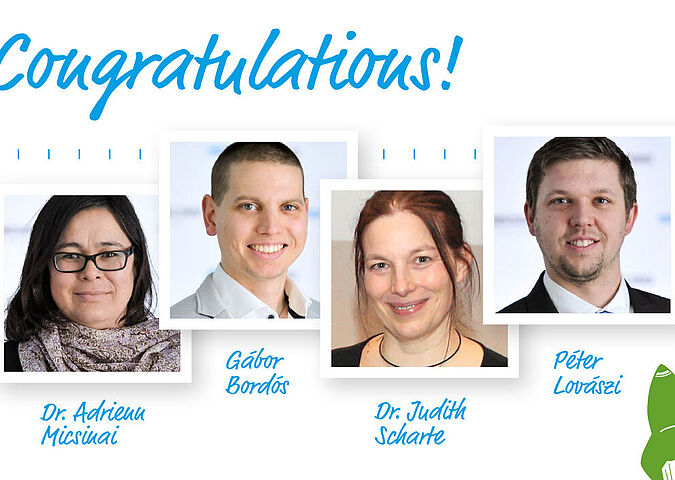
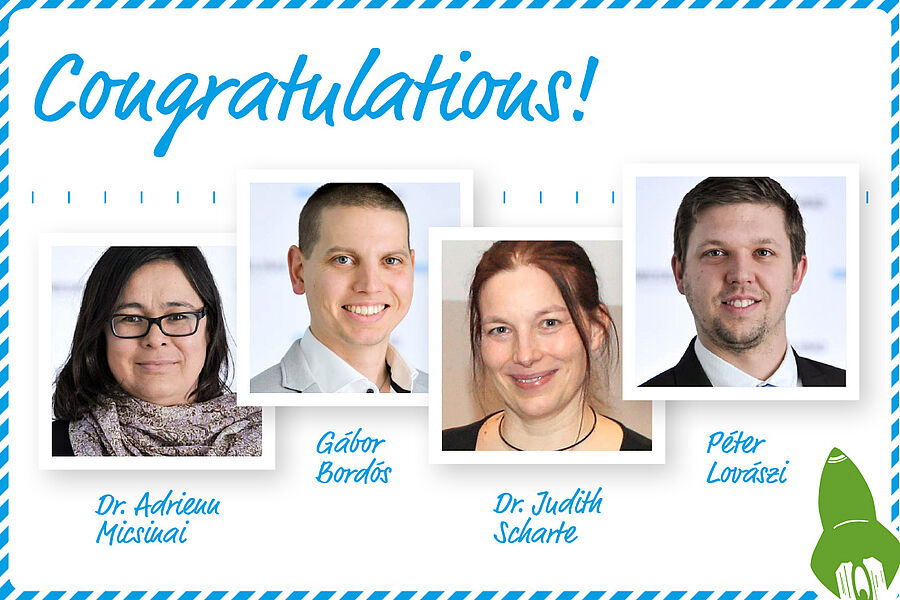
And the winners are:
Péter Lovászi from the WESSLING location in Budapest convinced the jury with his innovation to improve laboratory processes. His idea of a new cleaning process for laboratory vessels reduces the amount of solvent vapours in the ambient air, and thereby not only improves air quality but also saves time and money.
Another award went to Dr Judith Scharte from the German WESSLING location in Altenberge and Dr Adrienn Micsinai from WESSLING Budapest. During their international cooperation they developed new analysis methods to detect viruses on surfaces, in food and in environmental samples. This method enables WESSLING to support customers in assessing the effectiveness of hygiene measures, for example, in schools or slaughterhouses. Identifying potential risks in good time helps customers to prevent the spread of viruses.
Gábor Bordós, who is also with WESSLING Hungary, received the award for validating a microplastics sampling system that can be used to determine, more precisely, where the ideal sampling depth in water bodies lies. This is important in order to obtain exact values for the concentration of microplastics for the analysis that follows. This innovation can be seen as the company's response to increasing customer requests for analysis and sampling of microplastics in water bodies.
“An innovation is more than just a good idea”, Julia Wessling, shareholder and innovation manager at WESSLING, emphasises. On selecting ideas for the award, the jury attaches great importance to the fact that it is a technical or organisational innovation that also fully convinces in terms of implementation. This objective is achieved by responding to customer needs and recognising trends in good time, which is an important continuous process for leading a company into a strong and healthy future. This spirit of innovation is firmly anchored in the corporate culture of WESSLING and is specifically promoted by various internal processes, such as an Innovation Management System. “We advise customers from a wide range of sectors and are known to them as problem solvers, and as a company that provides flexible and innovative answers to new questions. We therefore attach great importance to a targeted promotion of innovations”, says Julia Wessling.
The WESSLING Innovation Award prizewinners
WESSLING Innovation Award 2019
Corporate culture at WESSLING makes ideas sparkle
The winners of the grand innovation prize of the WESSLING Group have been announced. For the twelfth time now, the consulting and analysis company has honoured the pioneering ideas of its employees. This time four ideas originated from Germany and France convinced the jury to rant the WESSLING Innovation Award, which is endowed with 10,000 Euro.
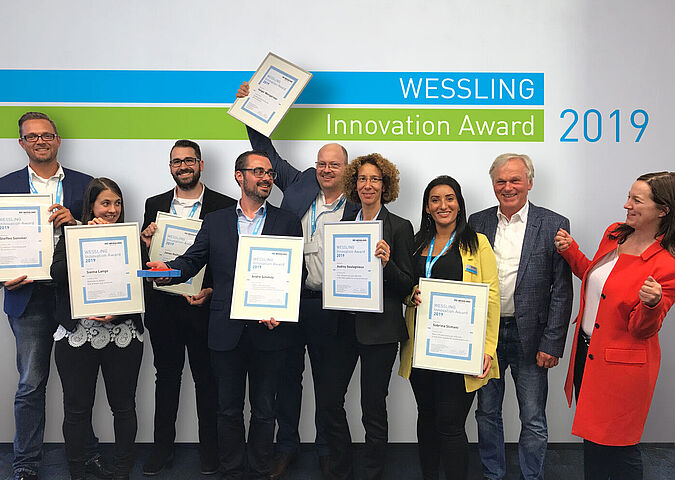
Impressions of the award ceremony and the awarded ideas
Mikroplastics: Methods to detect and analyse tyre abrasion
One coveted award went to chemist Siema Lange and chemical laboratory technician Jonas Holtgreve for their outstanding work on measuring microplastics caused by tyre abrasion during the research project “Tyre abrasion in the environment“ (RAU). With laboratory analyses and expertise in microplastics, WESSLING is one of Europe's leading companies in the field.
Additive Manufacturing: Emissions and safe 3D printing
Chemist André Schmitz has pioneered new methods for the laboratory measurement of emissions using 3D printers, and has also been among the winners of the WESSLING Innovation Award for this development. WESSLING is one of the few laboratories working in this sector. Based on this knowledge, customers receive comprehensive advice and can optimise 3D printers for their business and customers.
Combining 3D printing and 3D construction
Together with his colleagues Rolf Bögeholz, Steffen Sommer and Holger Weingärtner from engineering and consulting services, André Schmitz has been part of another customer-oriented innovation. By using 3D design technology for the 3D printing of terrain models, the potential challenges of the subsoil, and the resulting costs for the customer, can be better identified in advance. Anna Weßling, managing partner of the WESSLING Group, was impressed: “It is a great pleasure for me that this innovation has been developed for our customers by our employees across business units. This is a good example that focuses on our customers, because they can in turn convince their customers with our innovation.”
Fast, efficient and cost-effective: a new filter system for eluate production
Another idea was honoured during the ceremony in Budapest: the innovation created by colleagues from WESSLING France, at the Lyon location, benefits both the laboratory technicians at the workplace and the customers. Francis Bourdon, Fabienne Loisel, Sabrina Slimani and Audrey Goutagnieux designed a new vacuum filter system for preparing soil samples. New funnels were made by a glass manufacturer and they built the system themselves. This innovation considerably accelerates sample preparation time and facilitates work in the laboratory. Fifty additional samples can be filtered daily to provide customers with faster results.
The winners were also able to celebrate their wealth of ideas during a sightseeing tour of the Danube city; a private organ concert had been arranged for them in the magnificent St. Stephen's Basilica, as well as a tasting in the Chocolate Museum.
The WESSLING Innovation Award prizewinners
Innovation Award 2018
“A lived culture of innovation is our motivation“
Faster, more precise, safer – the jury of the WESSLING Innovation Award 2018 was impressed by a new detection method for legionella that takes just a few hours. The international analysis and consulting service provider awarded a total of 10,000 euro to the best four innovations at this year's award ceremony in the LWL Museum for Art and Culture.
WESSLING attaches great importance to innovative spirit
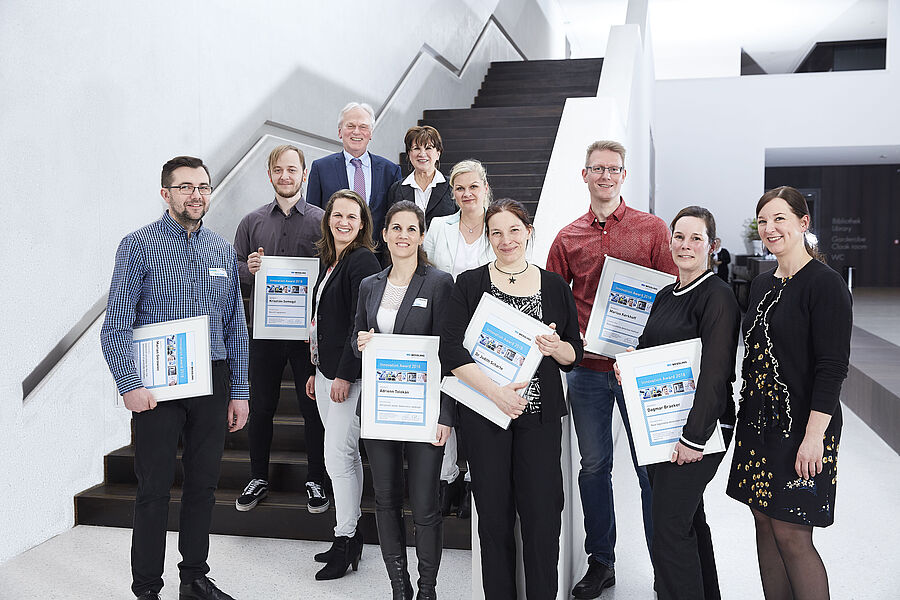
“Most recently, they said German companies ran out of ideas. We do not see this trend at WESSLING ", says Florian Weßling, managing shareholder. The company attaches great importance to an innovative spirit – and”, states Weßling, “good ideas don't always depend on the budget. Often it is the small improvements that give our customers and our services decisive advantages.“
“The company promotes this innovation climate through flat hierarchies, direct communication channels and close interdisciplinary cooperation. This lived innovation culture is our motivation and important to stay fit for the future," says Florian Weßling. Much of what was a vision yesterday is already part of our everyday life today, but may be outdated tomorrow. The winners convinced the jury with their innovations in the areas of food safety, environment and digitalisation:
Focus on food safety
Marian Górowiec from Poznan has developed an important tool for food testing: with its new calculator, the Acute Reference Dose (ARfD), i.e. the maximum permissible level of pesticide residues in feed, can now be calculated in around 30 minutes and thus three times as fast. Customers from the food industry have this value checked regularly in the WESSLING laboratories in order to comply with the strict controls for consumer protection.
Faster, more precise, safer: The new legionella detection method
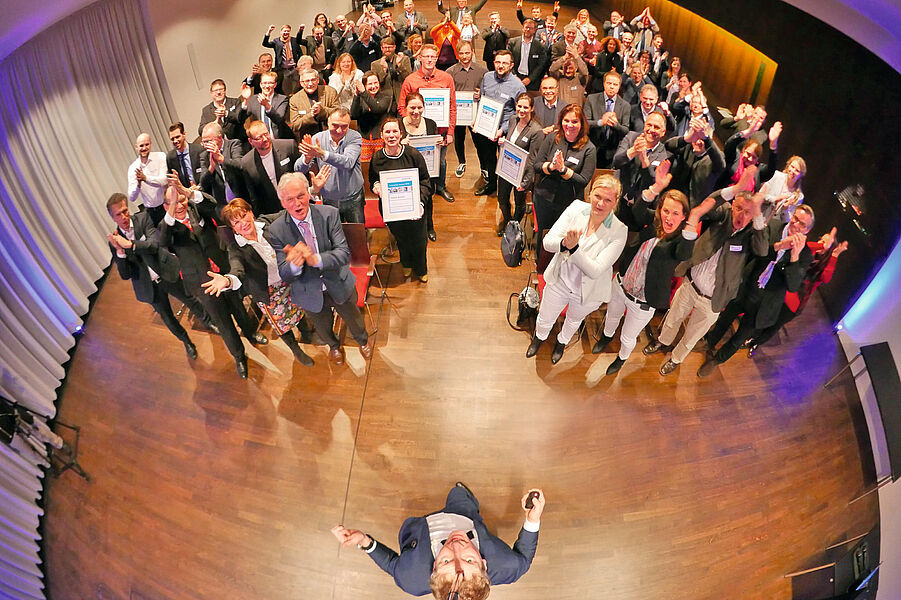
Thanks to the innovation of Dagmar Braeker, Marius Kerkhoff and Dr Judith Scharte from Münster, the company is "first on the market" with a new legionella detection method. It helps, above all, customers who remediated due to legionella infestation, e.g. in recooling plants, or who used biocides to combat bacteria. The new detection method provides them with information within a few hours of receiving samples in the laboratory as to whether the measures have taken effect – until now, this has taken several days.
Avoid plastic waste: how to increase awareness already in kindergarten
Adrienn Tolokán receives the WESSLING Innovation Award 2018 for her anti-plastic campaign in kindergartens and primary schools. With a painting competition, waste collection campaigns on rivers and short films, she initiated an intensive dialogue – also with parents and teachers – on environmental protection and sustainability. Micro plastic is currently one of the major topics of the WESSLING experts. They contribute their know-how to various European research projects.
New IoT-measuring instrument: digital interface for laboratory and customer
Krisztián Somogyi developed a digital interface between customer and laboratory in the sense of the "Internet of things". The complete online monitoring by the measuring device means a significant plus in quality assurance.
Do you have further questions?
I will be happy to support you.
- Jean-François Campens
- +33 4 74 99 96 23
- jeff.campens@wessling.fr
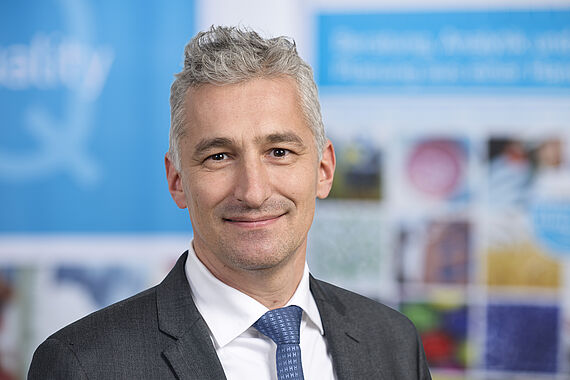
The WESSLING Innovation Award prizewinners
Innovation Award 2017
Innovation strength from everyday working life
“The best and most sustainable innovations result from a company constantly putting every process to the test”, says Florian Weßling. “This is why our employees can and should develop new ideas in their daily working life at any time.
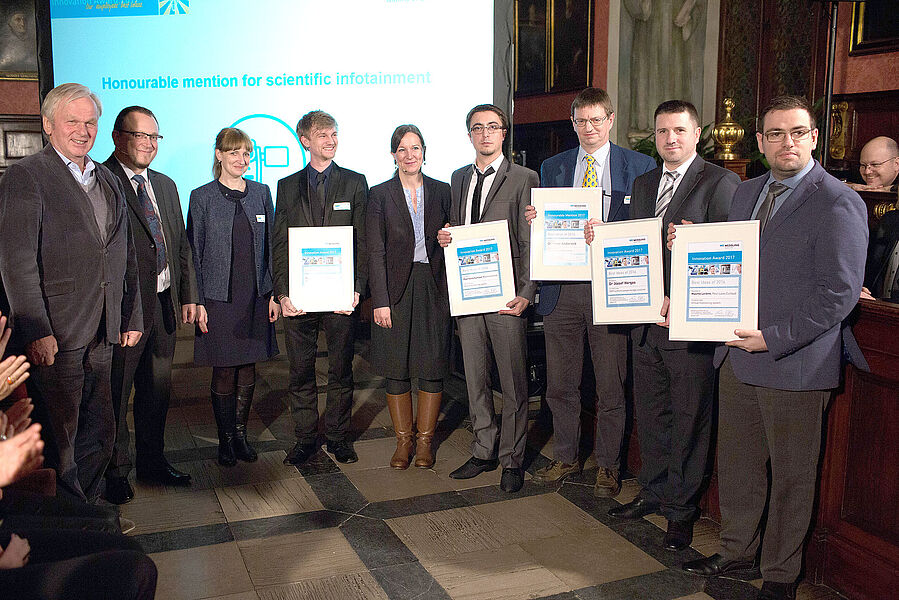
“We are a learning company, in which our employees are highly motivated in improving our processes, products and services”, Dr Erwin Weßling, founder of the family business, adds in describing the basis of innovations at WESSLING. “Every employee sees himself as a solution finder and in doing so always keeps an eye on our customers’ needs. This is how our colleagues decisively contribute to our success.” In order to increase its innovation power, the company also engages in cooperation with universities and technical colleges, participates in research and development projects and collaborates in DIN and technical committees.
For the tenth time now, this innovation culture has found visible expression in the WESSLING Innovation Award, honouring employees from France, Hungary and Germany during a ceremony in Kraków in Poland. This year, the award was presented at a highly symbolic site: the Collegium Maius of the Jagiellonian University, which was established in 1364 as the second oldest university in Europe and specialises in the natural sciences. Approximately 30 teams or individual employees had submitted their ideas for the prize endowed with a total of 10,000 euros. “We have 40 different professions in our company, half of them are natural scientists and engineers. This leads to many groups participating in the award being interdisciplinary in structure”, says Diana Weßling, spokeswoman of the Shareholder family. “So again and again, we dare to think outside the box, which makes all the difference.”
Prepare food and feedstuffs more efficiently
A good example for this is one of the winning teams. Quality Manager Natalie Ganzauer and the Laboratory Technicians Brian Patrick Morrison and Julius Pollhäne from the WESSLING site in Berlin have jointly developed a new method for a more efficient analysis of food and feedstuffs. For example, foodstuffs are tested for several hundreds, which are partially very instable pesticides. The laboratory colleagues cool and powder the starting material to obtain a homogeneous sample and later to be able to make a representative report. So far, the laboratories used solid carbon dioxide, commonly known as ‘dry ice’, which cools the product to about minus 78 degrees Celsius. The Berlin team searched for alternatives and tried liquid nitrogen. The process of cryogenic comminution, as it is called, achieves extremely low temperatures of minus 196 degrees Celsius. This now for the first time enables a more precise and faster identification of particularly unstable sulphur-containing pesticides: dithiocarbamates. The procedure is so innovative that the company works on including this new process in the EU Commission’s quality guidelines for pesticide analysis in food and feedstuffs.
Improved storage of medication samples
Award winner Dr József Horgos focused on a very different topic. In his capacity as a so-called ‘Qualified Person’, he has a very special task at the site in Hungary. Whenever WESSLING analyses pharmaceutical products for companies and approves them for market release, reference samples have to be professionally stored for up to one year beyond their expire date. On average, this is three to six years, in which Horgos is responsible for making sure that the medication can be analysed again at any time, for example, in the event of complaints. So far, the pharmacist at the laboratory in Budapest only had space for 200 samples, which was by no means sufficient. nowhere near enough. Therefore József Horgos has developed a specially secured cabinet that can be stacked on pallets in a special service provider’s high rack warehouse; if necessary, up to 2,000 pallets and around 112,000 samples can be stored in this way. Moreover, the warehouse fulfils all guidelines regarding temperature and humidity and is only accessible only to authorised personnel. Last, but not least, this also reduces the storage costs, which in turn benefits the WESSLING customers.
Hard- and software for more security and efficiency
At WESSLING France, Head of IT Paul-Louis Curtaud and software developer Maxime Lerbret have contributed their knowledge to optimise test chamber tests that measure the emissions released by building materials in interior spaces. The tests take place in about 50 chambers which must have clearly defined climatic conditions around the clock for 28 days. So far, the laboratory employees had to be constantly on site to monitor the humidity and temperature. The two award winners have now installed USB thermometers and hygrometer sensors that can be read remotely from any site by remote control. The probes are moreover used within a network, which saves physical computers and therefore space and costs. At the same time, the system provides more security because data loss is excluded, for instance, if the software on one computer is damaged. Paul-Louis Curtaud and Maxime Lerbret have additionally developed a programme that automatically saves the measured data every ten minutes.
Natural science infotainment
WESSLING’s work is often complex and thus not easy to convey to others. Experts therefore often have to go into more detail hen presenting their expertise at the WESSLING Academy and numerous external events. Dr Peter Andersch, Technical Director of Laboratories at the Münster site, has found a way to present scientific contexts in a simple manner. In a technical lecture, he provides an introduction into complex topics such as physical and chemical interactions in an amusing and comprehensible manner and compares generics and original medicines In doing so, he uses a kind of representative: the ‘AnalyTiger’, a soft toy that provides more vividness and comprehensibility during the presentation. Andersch received praise and acknowledgement for his concept.
Do you have further questions?
I will be happy to support you.
- Jean-François Campens
- +33 4 74 99 96 23
- jeff.campens@wessling.fr

From the very foundation of WESSLING, we have been supporting our business partners' success on the market with our innovativeness. With our thriving culture of innovation, we are fit for the future.
Our close ties to customers are also a source of inspiration and provide us with important stimuli for innovations. Each year, a jury selects the best ideas for the WESSLING Innovation Award; a total of 10,000 euros in prizes is awarded.


